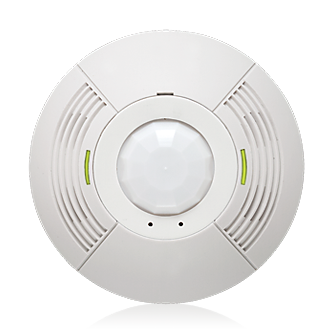When the person leaves the light shuts itself off.
Occupancy sensor working principle.
This post looks at how they work.
They are most often used in pir based motion detectors pir sensors are commonly used in security alarms and automatic lighting applications.
An occupancy sensor also known as a motion sensor can detect the presence of occupants in a room.
Pir sensors detect general movement but do not give information on who or what moved.
Passive infrared occupancy vacancy sensor dual circuit switch provides flexible sensing control from a single switch to two independent circuits 6a per circuit.
A passive infrared sensor pir sensor is an electronic sensor that measures infrared ir light radiating from objects in its field of view.
Pir sensors allow you to sense motion almost always used to detect whether a human has moved in or out of the sensors range.
When someone enters a room the occupancy sensor automatically turns on the light.
The connection between occupancy sensors occupancy analytics and smart buildings smart building technology is driven by the demand for more sustainable building management practices energy efficiency goals and the necessity to create dynamic responsive and optimised environments for occupants.
This sensor may also activate the lights.
What s an occupancy sensor and how does it work.
This guide will show you how they work how to use them and give you some project examples.
They detect motion in the room and control lighting automatically.
Occupancy sensors are one kind of devices used for detecting whenever space is empty then it is automatically deactivated the light so that the energy can be conserved.
Occupancy sensor and microwave detector.
An occupancy sensor is an indoor motion detecting device used to detect the presence of a person to automatically control lights or temperature or ventilation systems.
When someone enters the room the sensor detects motion and the sensor s switch is closed turning on the lights.
This is largely because they can be extremely cost effective tools for reducing energy use and costs.
Occupancy sensors small devices designed to detect the presence of a person are ubiquitous.
The sensors use infrared ultrasonic microwave or other technology the term encompasses devices as different as pir sensors hotel room keycard locks and smart meters occupancy sensors are typically used to save energy.
It s ideal for bi level switching applications such as independently controlled fluorescents in a classroom or restroom fan lights.
Occupancy sensors can replace light switches or can be mounted in the ceiling.
But human nature is what.
If no motion is detected after a certain amount of time lights turn off.
They are small inexpensive low power easy to use and don t wear out.

